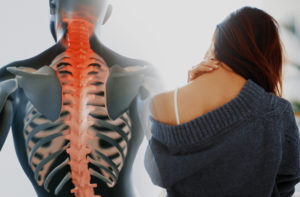What you need to know about herniated discs
- Posted on: Feb 15 2022

What are herniated discs?
The bones or vertebrae in your spine are cushioned by discs. These act as shock absorbers for the spine, so when part or all of the disc bulges, slips or ruptures, you may feel pressure on the spinal nerves, which leads to pain. Herniated discs are most common in the lower back or lumbar spine, but also occur in the neck or cervical spine.
What causes herniated discs?
Injuries are one cause of a herniated disc. Typically, a herniated disc happens over time as the disc material degenerates slowly over time and the ligaments that hold the material in place start to weaken. Small movements or falls can cause the disc to slip.
What does it feel like?
Depending on the location of the herniated disc and whether it’s pressing on the nerve, you may not experience pain at all. If it is pressing against a nerve, you may feel pain, numbness or weakness where the nerve travels. Herniated discs in the lower back or lumbar spine often put pressure on the nerves that connect to the sciatic nerve and can cause pain, tingling and numbness in the buttock area and down into the leg or foot, usually on one side of the body. Herniated discs in the neck or cervical spine may lead to dull or sharp pain in the neck or between the shoulder blades. This pain radiates down one arm to the hand or fingers. You may experience tingling or numbness in the shoulder or arm.
How is it treated?
The good thing about herniated discs is that most do not require surgery. Begin by limiting your activities for a few days and walk as tolerated. Use over-the-counter anti-inflammatory medication to manage pain. If the pain doesn’t get better, see your doctor for additional treatment options such as physical therapy, If your symptoms persist for longer than four weeks, you should see a spine specialist for advanced imaging and evaluation for potential surgical treatment. If you are dealing with an orthopedic problem that needs further evaluation, please call 707.544.3400 today.
Posted in: Herniated Disc and Degeneration

